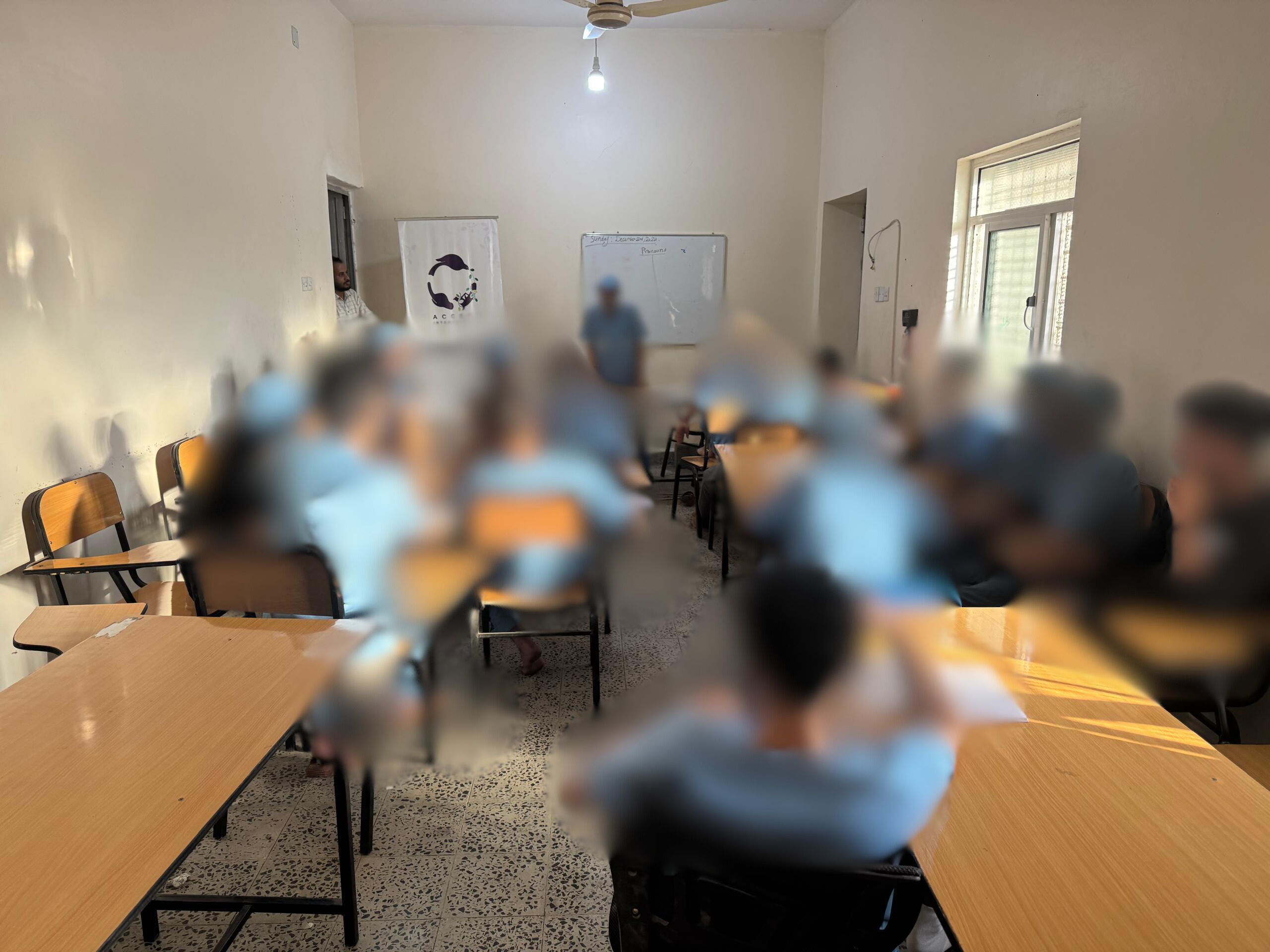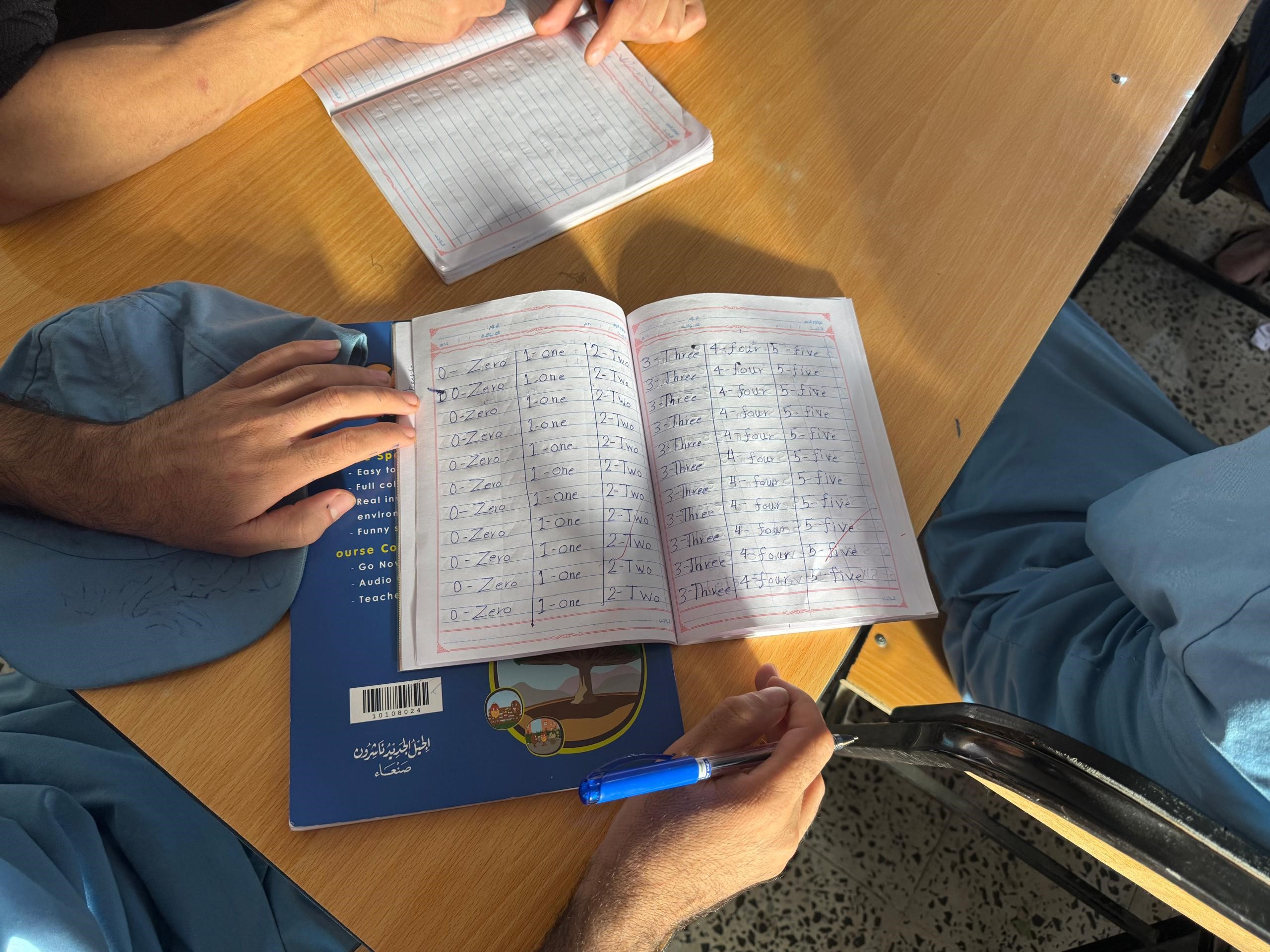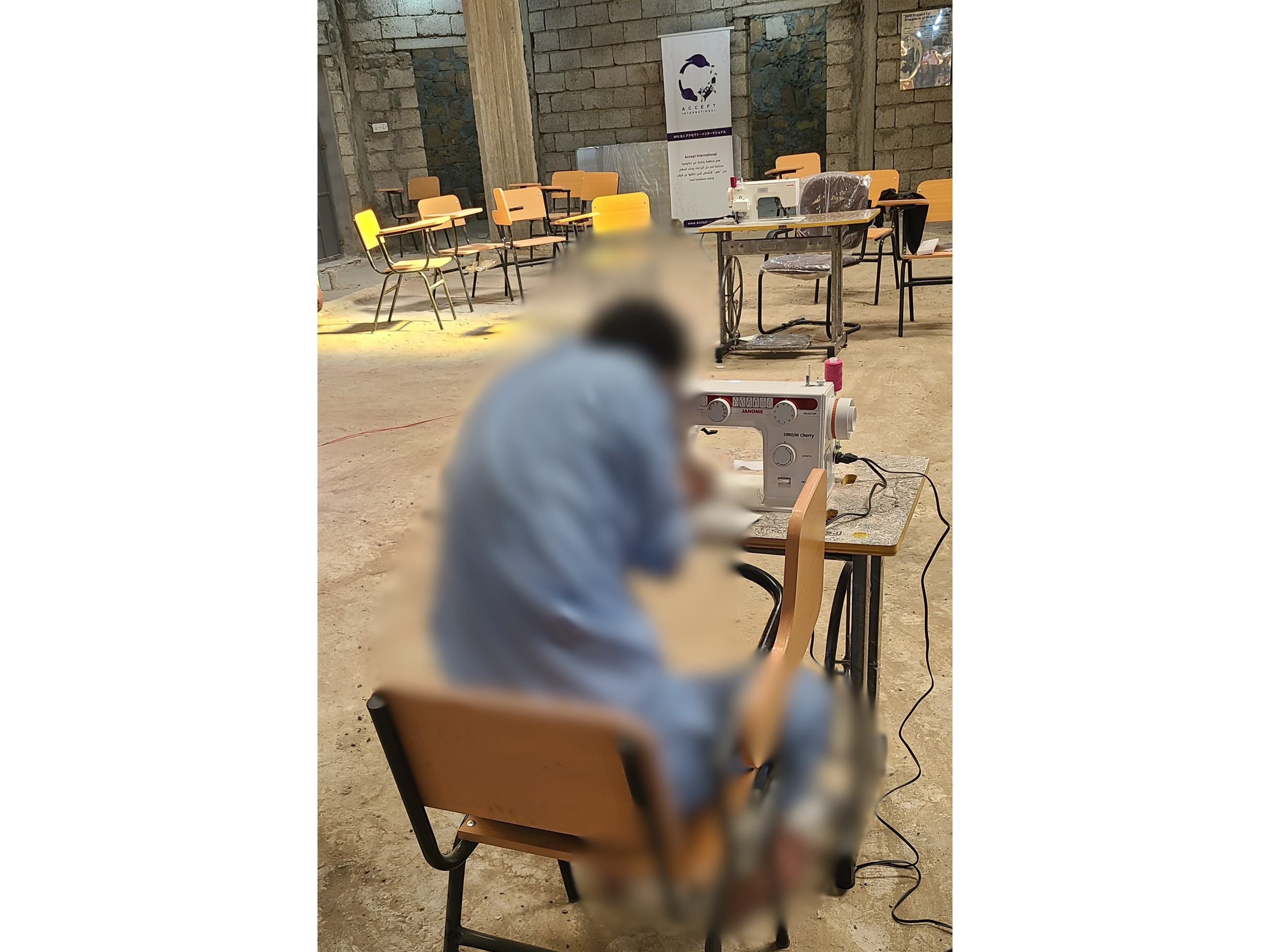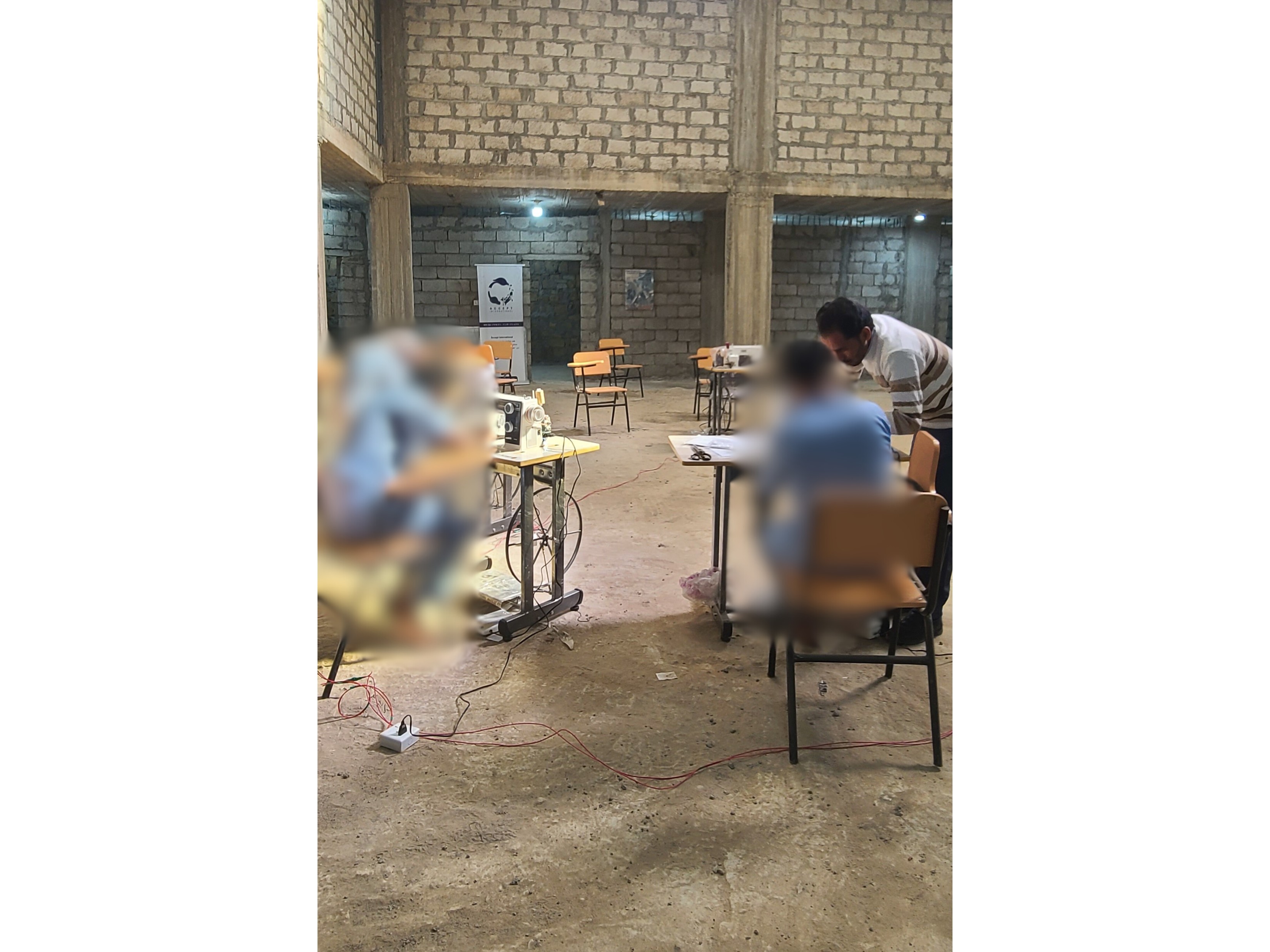February 1, 2025

This time, we report on newly-started language classes in Taiz Governorate, Yemen, and sewing-based vocational training in Ma’rib Governorate.
1. Start of Language Education Classes in Taiz Governorate
Taiz Governorate is a frontline region in Yemen characterized by prolonged conflict and many civilian casualties.
We are supporting young people who were members of the Houthis (an anti-government armed group) in a special prisoner detention center in Taiz. So far, we have provided comprehensive rehabilitation and reintegration support including supplying daily essentials, installing bookshelves, vocational training, care counseling, religious re-education and so on.
Amidst these efforts, we have now started language education classes for detainees. Many among Yemen’s detainees had no opportunity to attend school – either because they were forced to join armed groups at a young age, or due to economic destitution. As a result, it is not uncommon for young people to lack basic literacy. For that reason, classes are taught in both Arabic and English.
English was included in the curriculum to broaden their future options. Understanding English can enable access to information from overseas and help broaden their perspective. We also hope it helps them continue learning even after social reintegration.
We are also providing textbooks and stationery for the classes.
 ▲ A notebook used in the language education class.
▲ A notebook used in the language education class.
From among the detainees who benefit, we selected two to serve as lecturers in the language education classes. After their release, we aim for them to become agents of peace in society and to create spaces where they can realize their own capabilities.
We also heard voices from young people participating in the language education class:
A young person participating in the class:
“I believe selecting a lecturer from among the detainees is very meaningful. He is someone we can speak with freely, and I can see that he is working hard to teach in a way that helps us learn. Also, not only in the classroom, but he continues to follow up even inside the cell.”
“Before, I had completely lost hope and was in despair, but thanks to this program, I have come to hope again. Every class I attend, I feel that I am growing.”
A young person who became a lecturer:
“I deeply thank you for believing in us and giving me this precious opportunity to be a lecturer. Because of this, I have been able to gain confidence. Thank you very much to Accept International and to all the donors. Until now, I felt that nobody in society cared about us, but thanks to all of you I can have hope. I ask for your continued support.”
We will continue striving for them to broaden their possibilities as agents of peace through inclusive programs such as language education classes.
2. Vocational Training: Sewing Skills in Ma’rib Governorate
Marib is a strategically important place, being a stronghold for government forces. As with Taiz, we are delivering rehabilitation and reintegration support in special detention centers, and last year we also built a new rehabilitation facility to expand these efforts.
In this rehabilitation facility, we are piloting vocational training in the form of sewing skills.
In Yemen, there is a high demand for sewing and traditional clothing, for example, for Islamic festivals and weekly Friday prayers. Acquiring sewing skills offers a useful opportunity for securing a stable income after reintegration and thereby sustaining a peaceful life.
In the program, participants begin by learning basic sewing by hand and how to operate sewing machines. Through hands‐on work, they realize that they are learning skills that will help them after social reintegration. This builds their motivation and a sense of independence. Based on what we learn in this pilot, we are preparing for full implementation.

 ▲ Vocational training in sewing at the newly established rehabilitation facility.
▲ Vocational training in sewing at the newly established rehabilitation facility.
Additionally, in the field there is a certain demand for motorcycle repair. We plan also to conduct vocational training in motorcycle repair. We will continue exploring various possibilities that match local needs.
Future Prospects
Access to conflict frontlines like Taiz and Ma’rib is not easy, and humanitarian support by international agencies is not always sufficient. War prisoners under Houthi control are often ultimately left behind in extremely high-risk situations.
Negotiations for “prisoner exchange” between the Houthis and Yemen’s provisional government have repeatedly broken down and came to a halt. A “prisoner exchange” means negotiations in which each side (Houthis, Yemeni government) releases prisoners to be exchanged.
However, if it’s just a “swap,” that could mean these young people return to the Houthis. Thus, we are working toward realizing their release, and supporting them to return to the places where they wish to live.
While supporting them through language education classes and vocational training so that they can become agents of peace, we will also persistently engage in advocacy at high levels.
This is not a problem solved overnight, but we sincerely ask for your warm support.
To our Readers
In order to rescue people ensnared by violence together with society, strongly support those walking a new path, and build lasting peace, we would be grateful if you would join us as an Ambassador.
Activity Reports










